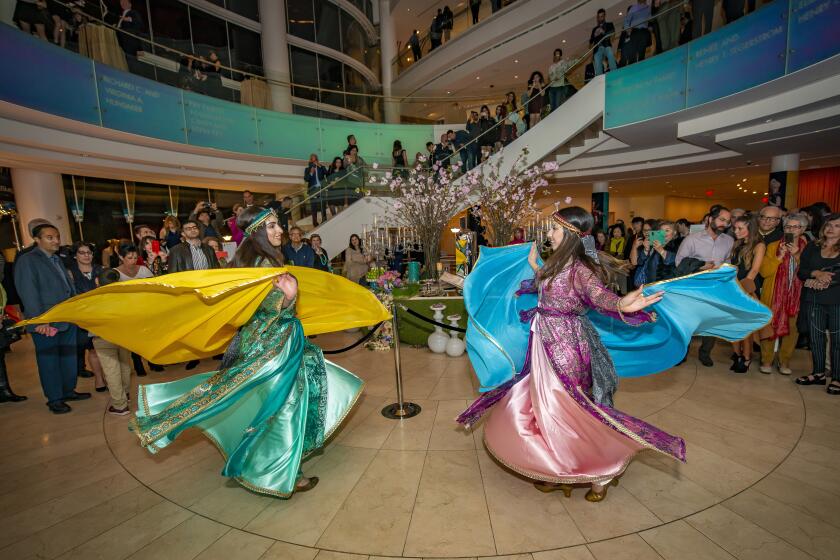Iranian vocalist, headliner at Segerstrom Nowruz celebration interrogated, denied U.S. entry
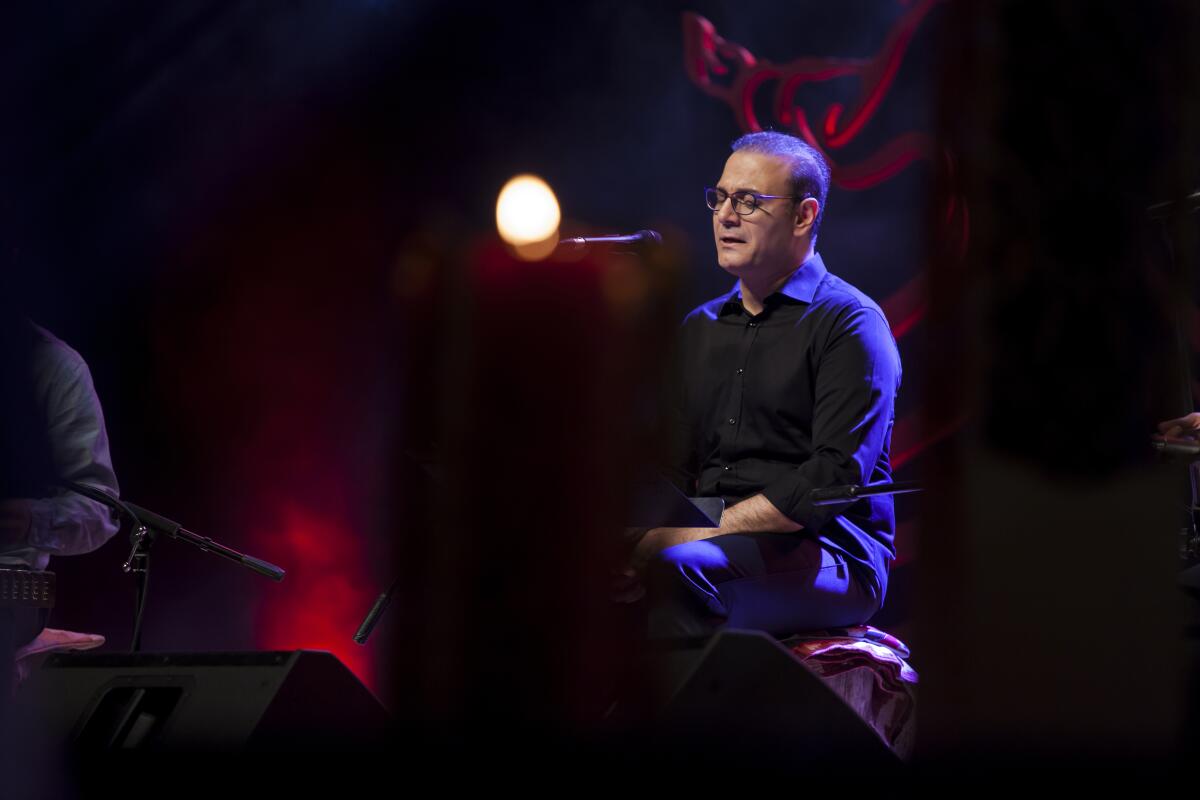
- Share via
A sold-out celebration of Nowruz, the Iranian New Year, at Costa Mesa’s Segerstrom Center for the Arts Saturday featured appearances by some of the most renowned performers of Iranian music, song and dance — but one headliner was noticeably absent.
Organizers of the show reported famed Iranian vocalist Alireza Ghorbani, a legal resident of Canada, was unable to attend after being detained by agents in an airport in Toronto Friday and refused entry to the United States following an interrogation.
Alireza Ardekani, executive director for the Los Angeles-area nonprofit Farhang Foundation, which collaborated with the Pacific Symphony to host the Nowruz event, said he learned Friday the headliner’s visa had been canceled by U.S. Citizenship and Immigration Services.
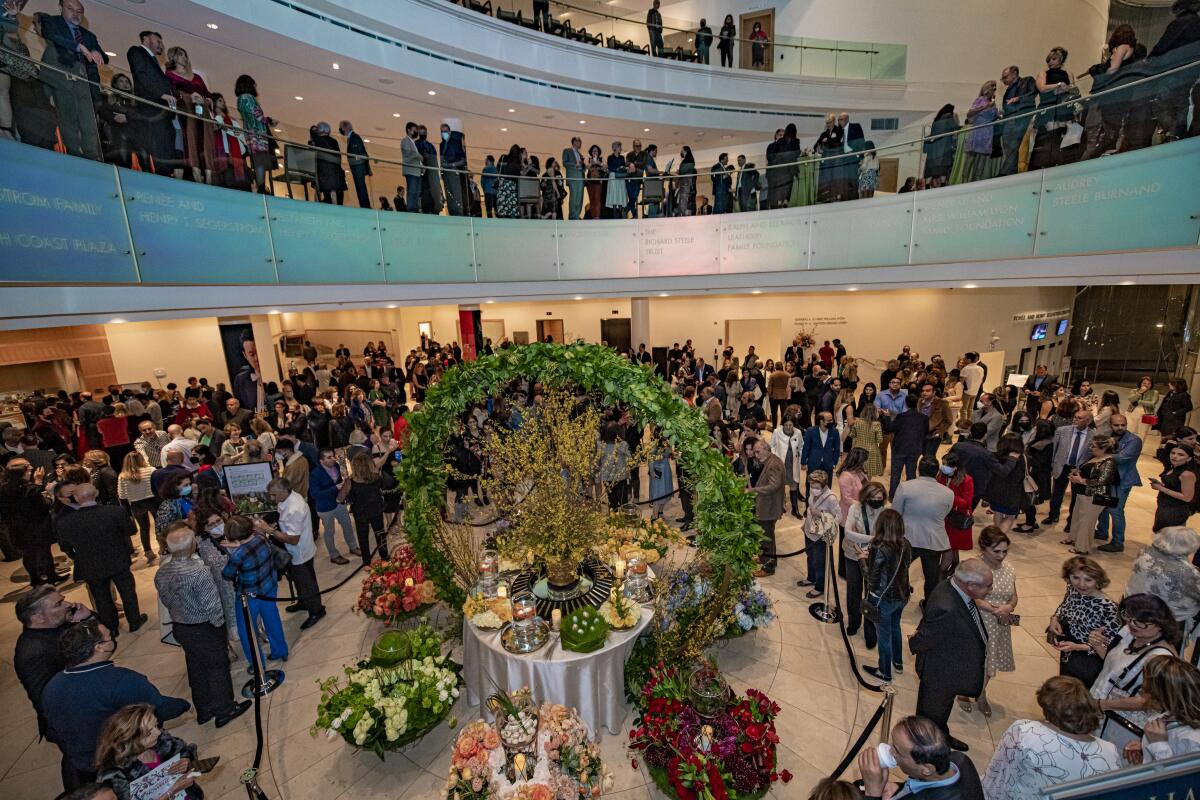
“They interrogated him for nearly four hours and eventually told him his visa was going to be canceled and he could no longer travel to the U.S.,” Ardekani said Tuesday. “I just got a text saying he was not allowed to come — I thought it was a joke.”
According to Shervin Abachi, whose law firm represents Ghorbani, the Iranian vocalist was directed by U.S. Customs and Border Patrol agents at the airport to a secondary check-in area, where he was questioned and his visa canceled before he boarded the plane.
Ardekani later learned Ghorbani’s temporary detention and denial of travel likely stemmed from the 49-year-old’s compulsory service decades earlier in Iran’s Islamic Revolutionary Guard Corps.
A branch of the nation’s armed forces, the military body was identified in 2019 by the Trump administration as a foreign terrorist organization under the Immigration and Nationality Act. While dozens of organizations were placed on the FTO list at the time, IRGC was the only governmental entity to receive the designation.
The move has since created numerous travel and immigration hassles for Iranian nationals wishing to travel or immigrate to the United States, said Masih Fouladi, deputy director of the Los Angeles chapter of the Council on American-Islamic Relations.
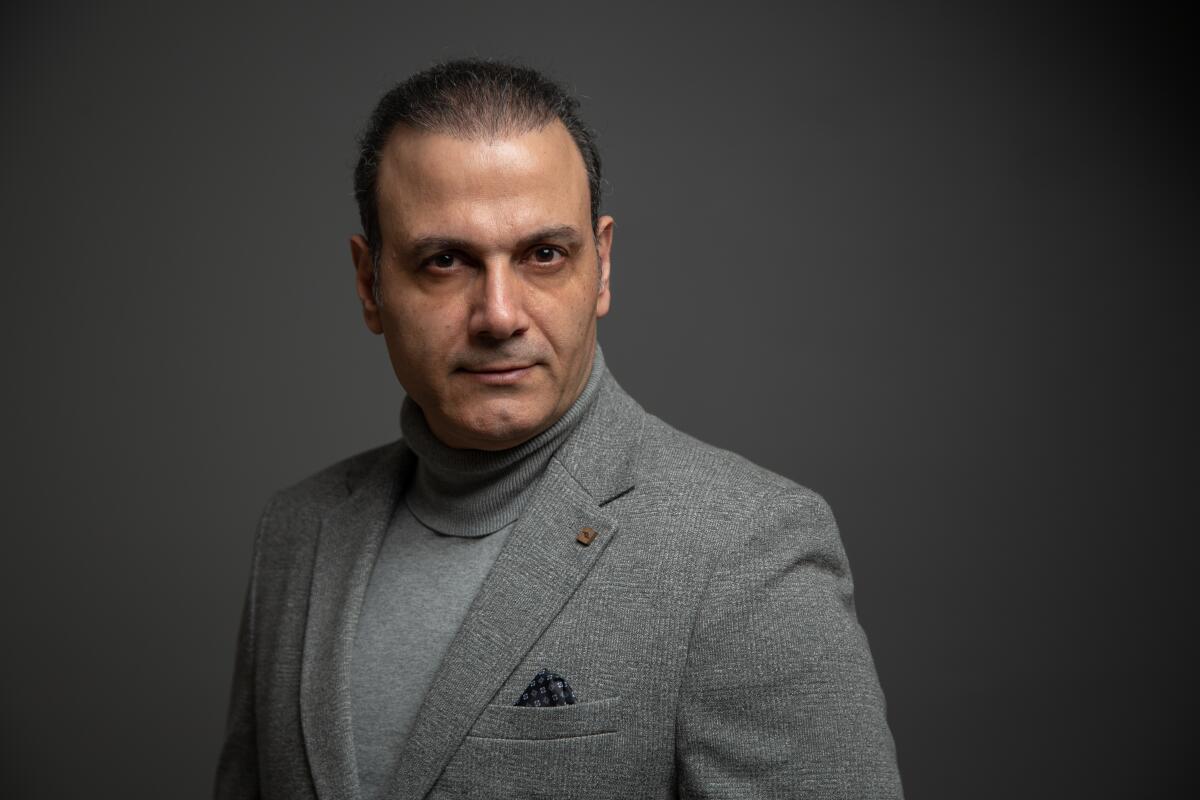
Because Iran requires up to two years of voluntary or conscripted military service for male citizens 19 and older who have completed their education, many citizens are essentially drafted to serve — including in the Guard Corps — making them subject to U.S. restrictions intended to apply to individuals with terrorist affiliations.
While some are impeded from traveling to the United States, others may encounter difficulties obtaining green cards, even when they have relatives, wives and children already living in America.
“They may have served 20, 25 or 30 years ago, and many of them may have served in clerical roles, nothing that had anything to do with combat,” said Fouladi, who was born in Iran. “And now they’re facing obstacles to residency status.
“I think [the designation] was intended to marginalize Iran’s government, but the truth it is has really impacted Americans here who identify as Iranian.”
Locals are invited to take part in the March 26 celebration, which features traditional vocalists, dancers and performances by renowned Iranian composers and musicians.
Ryan Costello, policy director for the National Iranian American Council acknowledged the Trump-era designation has placed Iran in a unique position, in which a citizen can, by definition, be drafted into a terrorist organization and potentially have his past service retroactively used against him.
“The fact we’re applying this to a foreign military and people who’ve been out of the IRGC for decades underscores how they need to revisit these policies,” he said. “For [Ghorbani] to be denied is really an outrage. It reads from the outset like a miscarriage of justice and an insult.”
Costello said the policy is currently being discussed in ongoing negotiations between the U.S. and Iran and could potentially be a bargaining chip in talks centering around nuclear deescalation.
Ardekani said the Farhang Foundation coordinated with immigration attorneys hired by Pacific Symphony months ahead of Saturday’s performance to secure a travel visa for Ghorbani. A P-3 visa allows for the travel of artists or entertainers coming to the United States as part of a cultural program.
Ghorbani’s attorney said while the vocalist’s visa petition was approved in January, the singer was asked during a Feb. 28 visa appointment interview to provide his original military service card and passport and complied with the request. After more than two weeks of deliberation and communications back and forth, the travel document was issued March 25.
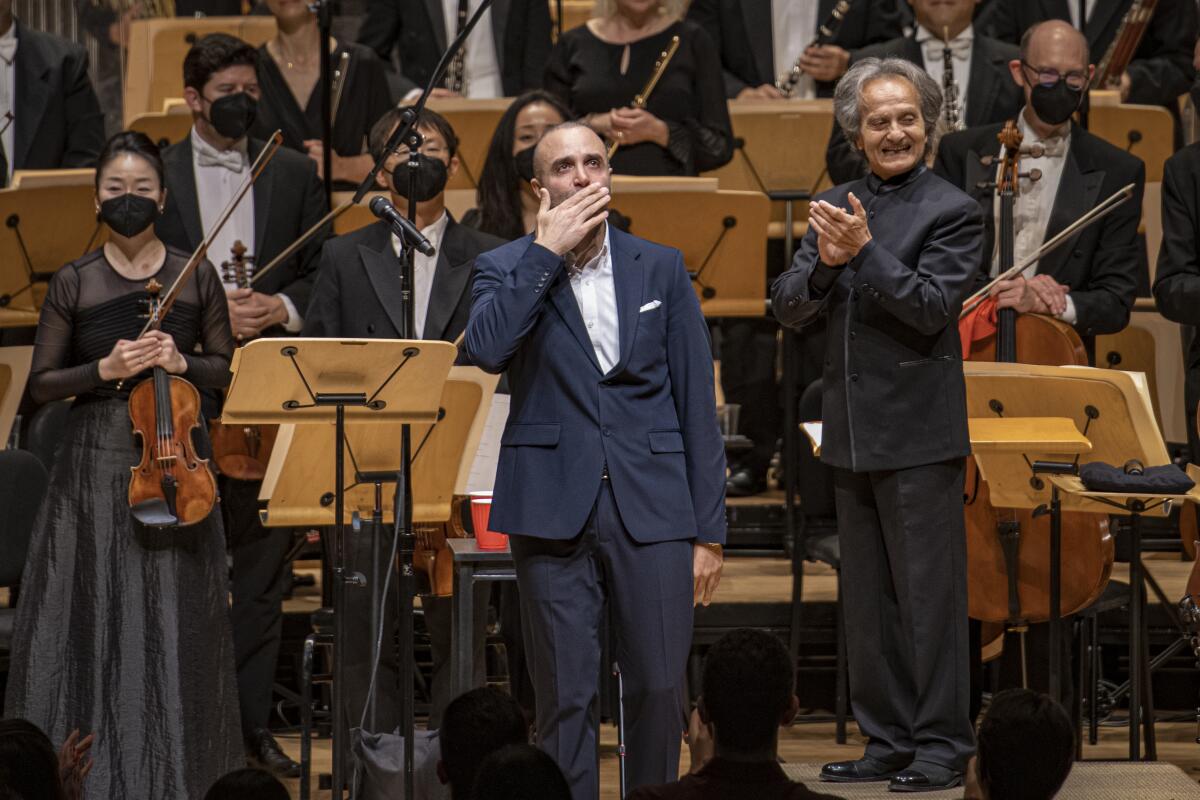
“Just to get the visa we had a village of representatives here in the United States who wrote letters of recommendations — congresspeople, chancellors and deans of academic institutions — saying this is a real artist coming to the country [in a cultural capacity],” Ardekani said of the P-3 visa application process. “His visa was approved back in January and issued on Friday.”
On short notice, organizers of Saturday’s Nowruz celebration secured Iranian vocalist Sina Sarlak to fill in for Ghorbani. He quickly rehearsed with Iranian American conductor Maestro Shardad Rohani and performed a moving rendition Saturday of the song “Ey Iran!” which Ardekani said was particularly poignant given all that had happened.
“[Sarlak] was crying on stage, the conductor was crying,” he said. “Everyone in the hall was very emotional.”
Updates
10:51 a.m. April 1, 2022: This story was updated to reflect new information about what happened to Alireza Ghorbani at the airport in Toronto on March 25 and to include details provided by an attorney whose firm represents Ghorbani regarding the visa application process.
All the latest on Orange County from Orange County.
Get our free TimesOC newsletter.
You may occasionally receive promotional content from the Daily Pilot.
